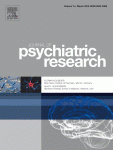 A psychiatric journal has pulled a 2014 paper that found electroconvulsive therapy and exercise helped people with depression, after the authors determined they had mistakenly analyzed the wrong data.
A psychiatric journal has pulled a 2014 paper that found electroconvulsive therapy and exercise helped people with depression, after the authors determined they had mistakenly analyzed the wrong data.
According to the retraction notice from the Journal of Psychiatric Research, the researchers had “erroneously analyzed” data from a previous study they had published the year before.
Here’s more from the note for “Electroconvulsive therapy and aerobic exercise training increased BDNF and ameliorated depressive symptoms in patients suffering from treatment-resistant major depressive disorder:”
This article has been retracted: please see Elsevier Policy on Article Withdrawal (http://www.elsevier.com/locate/withdrawalpolicy).
This article has been retracted at the request of the editors as the reported results are based on a confused data set according to a recent notification by the authors. Instead of the original data of the actual study, data from a previous publication of the same group (Haghighi et al., 2013) have been erroneously analyzed.
The 2013 study by many of the same authors, “Additional ECT increases BDNF-levels in patients suffering from major depressive disorders compared to patients treated with citalopram only,” looked at the effect of electroconvulsive therapy on major depressive disorder, using similar measures as the retracted study.
The retraction was handled the European office of the Journal of Psychiatric Research, according to Alan Schatzberg, one of the journal’s co-editors. We contacted the European office, which simply forwarded us the retraction note. We’ve also reached out to the last author on both papers, Serge Brand, based at the University of Basel in Switzerland.
The 2014 paper has been cited eight times, according to Thomson Scientific’s Web of Knowledge.
Hat Tip: Rolf Degen
Like Retraction Watch? Consider making a tax-deductible contribution to support our growth. You can also follow us on Twitter, like us on Facebook, add us to your RSS reader, sign up on our homepage for an email every time there’s a new post, or subscribe to our new daily digest. Click here to review our Comments Policy.
I don’t work with these sorts of data sets, but I still wonder how a second study could go through the data collection process, the new data be analyzed, and a second paper be created regarding that data, without any of the authors from the same group, or editors, noticing that the data was exactly the same as the first.
I truly don’t understand this kind of mixup.
I think it could be as easy as opening the wrong data file for analysis. I’ve been involved in work where only one or two authors ever used the raw data (*.sav files in SPSS). The rest of us looked at the output files with results of analysis (*.spv files in SPSS). Even though file names are printed as part of the output, they may not be a good quality check…
http://www.phdcomics.com/comics.php?f=1323
The PubMed entry has no mention of the retraction:
http://www.ncbi.nlm.nih.gov/pubmed/25073431
Not unusual: http://retractionwatch.com/2014/06/30/some-retractions-take-three-years-to-show-up-on-pubmed-study/